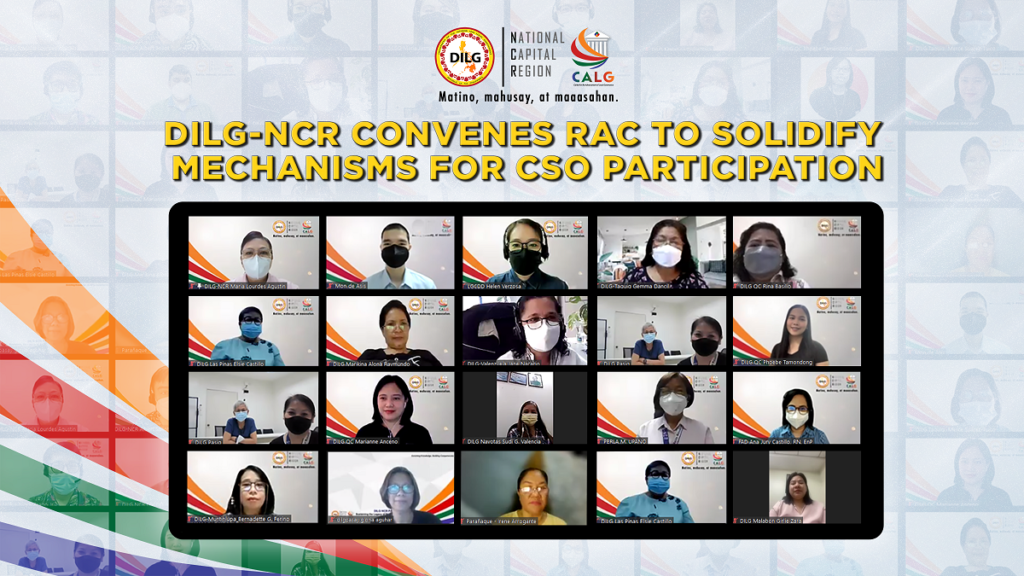
In line with its pursuit of local development and good governance through partnerships with Civil Society Organizations (CSOs), the Department of the Interior and Local Government – National Capital Region (DILG-NCR) convened its Regional Accreditation Committee (RAC) for Civil Society Organizations’ (CSOs) Engagement on February 16, 2022, via Zoom Teleconferencing.
LGOO V Maria Jasmin Diaz, the lead RAC Secretariat, briefly presented the roles and responsibilities of the regional accreditation committee emphasizing the role of the committee to act on all CSO applications for accreditation or certification originating from all cities and the lone municipality in NCR.
The activity, attended by the regional management, city directors, MLGOO, division chiefs, and field focal persons, served as an avenue to discuss the DILG MC No. 2022-05 which governs the accreditation and certification process.
DMO IV Leonides Frago discussed the salient provisions of and changes made to the said MC, which prescribes, updates, and harmonizes all the previous issuances in connection with the said process.
Notable changes and amendments that will benefit the CSOs include: an updated list of projects, programs, and activities (PPAs) that CSOs may participate in; shortened timeline for evaluation of an applicant’s eligibility; extension of the validity of Accreditation Certificate issued; and a simplified renewal process, among others.
In preparation for the 2022 deliverables on the CSO program, Division Chief Helen Verzosa laid down the calendar of proposed Work Plans for the year. Several activities are in the pipeline for 2022; these include: module training for CSO members in Local Special Bodies, capacity building program for CSO Desk Officers, and CSO conferences for each jurisdiction in NCR.
Regional Director Maria Lourdes L. Agustin, Chairperson of the committee, led the regional briefing and highlighted the critical role that the RAC plays in strengthening collaborative relationship between the Department and the CSOs.
“Partnering with CSOs has allowed us to establish a closer connection to our local communities, thereby providing a more definite understanding of the people’s needs at the grassroots level and ensuring quality service delivery,” RD Agustin said.
